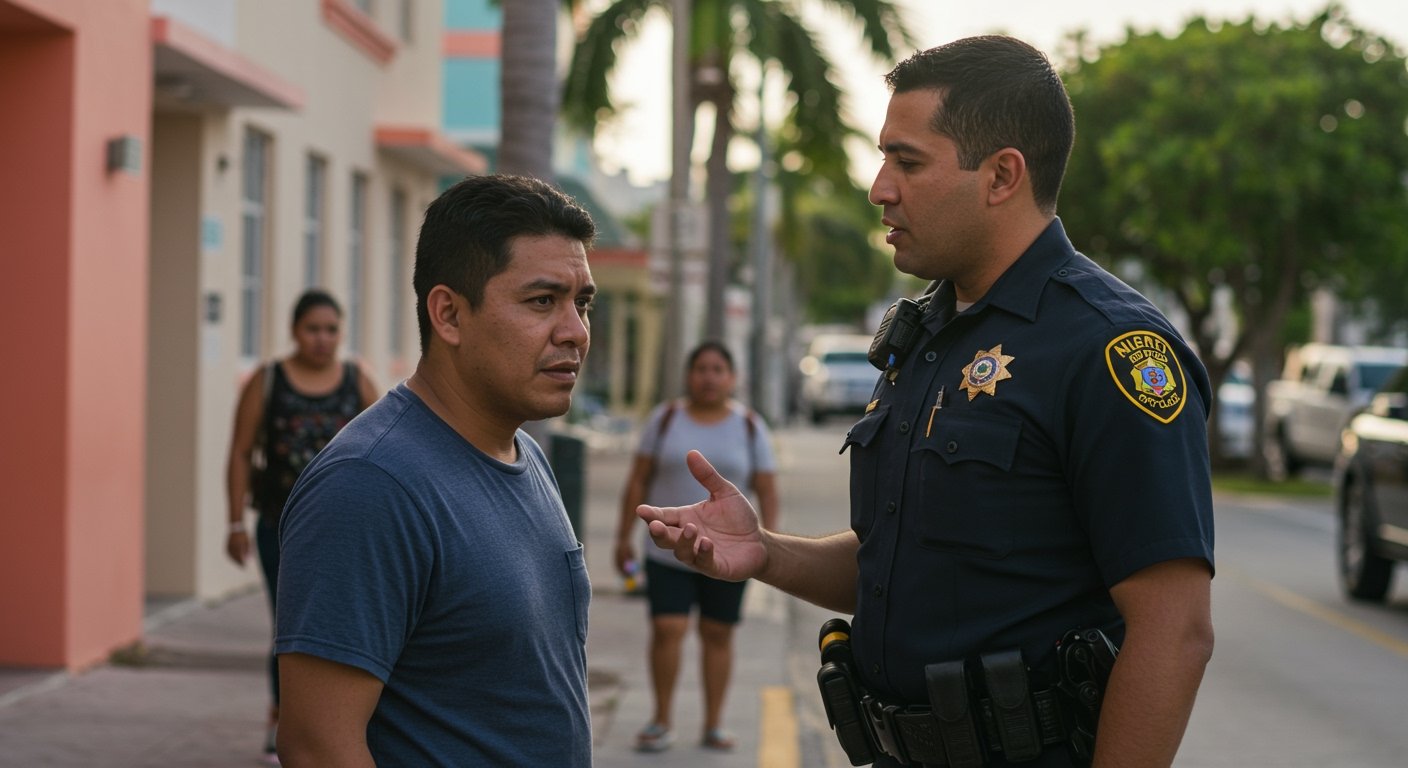MIAMI, Florida — The Miami City Commission has approved a controversial agreement with U.S. Immigration and Customs Enforcement (ICE), allowing local police officers to assist in federal immigration enforcement. The decision, made during a vote this past Tuesday, has sparked significant debate and raised concerns within Miami’s large and diverse immigrant community.
Understanding the 287(g) Program
The agreement in question is a 287(g) program, named after a section of the Immigration and Nationality Act. This program permits the Department of Homeland Security (DHS) to delegate certain immigration enforcement functions to state and local law enforcement officers. Under a 287(g) agreement, selected local officers receive specialized training and authorization to identify, process, and detain individuals who have violated immigration laws, often while the individuals are in local custody for state or local offenses.
Proponents of the 287(g) program argue it enhances public safety by identifying and removing undocumented immigrants who have committed crimes. They contend it adds an extra layer of enforcement capacity by leveraging local resources.
Contextually, Miami is one of the last jurisdictions in Florida to enter such an agreement. All 67 counties in Florida have reportedly signed 287(g) agreements, making Miami’s previous hesitance notable. However, the recent commission vote signals a shift for the major metropolitan center.
The Commission’s Vote and Key Voices
The vote on the 287(g) agreement at the Miami City Commission was closely watched and resulted in a 3-2 decision in favor of adopting the program. Commissioners Joe Carollo, Miguel Gabela, and Ralph Rosado voted to approve the partnership with ICE. Speaking against the measure were Commissioners Christine King and Damian Pardo, who voiced concerns about its potential impact on the community.
The city’s top law enforcement official, Miami Police Chief Manuel Morales, reportedly expressed reservations about the agreement, specifically voicing concerns about potential political fallout. This suggests an awareness within the police department of the sensitive nature of immigration enforcement in a city with such a significant foreign-born population and history of welcoming immigrants.
Miami’s Unique Demographic and Historical Context
Miami stands out among American cities for its deep ties to immigration. It is widely regarded as a city fundamentally built and shaped by successive waves of immigrants and refugees. For decades, Miami has served as a primary destination and haven for people fleeing political instability, economic hardship, or persecution from various parts of the world. Its population includes large and vibrant communities originating from Cuba, Haiti, Nicaragua, Venezuela, Mexico, Argentina, Colombia, and Guyana, among many other nations.
This rich history of welcoming newcomers makes the City Commission’s decision particularly significant. Critics argue that adopting a program that intertwines local policing with federal immigration enforcement represents a departure from Miami’s traditional identity and could fundamentally alter the relationship between law enforcement and a large segment of the population it serves.
Criticisms and Community Concerns
Opponents of the 287(g) agreement voiced numerous criticisms, primarily centered on its potential to erode trust between immigrant communities and local police. Critics argue that allowing local officers to act in immigration enforcement roles fuels fear and distrust, making immigrants — regardless of their legal status — hesitant to interact with law enforcement even when they are victims of crime or witnesses to illegal activity.
There are serious concerns that routine police encounters, such as traffic stops or minor ordinance violations, could become unexpected deportation triggers. This possibility, critics contend, could lead to victims of crimes avoiding reporting incidents for fear of immigration consequences. Similarly, advocates warn that people might avoid seeking essential services, including medical care at hospitals or enrolling children in school, for fear of encountering law enforcement tied to immigration enforcement.
The debate in Miami reflects a national tension surrounding the 287(g) program, which has been implemented in various forms across the United States. While supporters emphasize its role in enforcing immigration law and enhancing safety, opponents highlight the potential for racial profiling, civil rights violations, and the undermining of community policing efforts.
Potential Paths Forward and Mayoral Discretion
Following the City Commission’s approval, attention now turns to Miami Mayor Francis Suarez. As the city’s mayor, Suarez possesses the authority to veto the Commission’s vote. This potential action is particularly noteworthy given Mayor Suarez’s own background; he is the son of Cuban immigrants, a heritage that resonates deeply within the Miami community.
However, as of now, there is no indication that Mayor Suarez plans to exercise his veto power. His decision, or lack thereof, will ultimately determine whether the 287(g) agreement moves forward, officially incorporating Miami’s local police into federal immigration enforcement operations.
Conclusion
The Miami City Commission’s vote to enter into a 287(g) agreement with ICE marks a pivotal moment for a city whose identity is inextricably linked to immigration. While proponents see it as a necessary step for law enforcement cooperation, critics view it as a detrimental policy that risks alienating a significant portion of the population and undermining public safety by fostering fear. The coming weeks will reveal whether the mayor intervenes or if the agreement takes effect, potentially reshaping the relationship between immigrant communities and the police department in one of America’s most diverse major cities.





